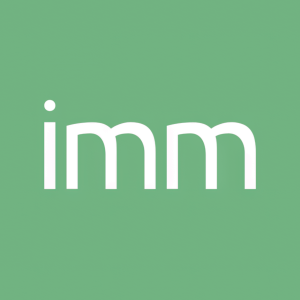Immutep Announces Chinese Patent Grant for LAG-3 Antagonist Antibody LAG525
Immutep Limited (ASX: IMM; NASDAQ: IMMP) has announced the grant of patent no. ZL201580013695.X by the Chinese Patent Office for LAG525, an antibody molecule aimed at treating cancer and infectious diseases. This patent follows prior grants in Australia, the U.S., Europe, and Japan. LAG525, a humanized form of IMP701, is currently being evaluated in clinical trials in collaboration with Novartis AG. The patent, set to expire on March 13, 2035, is co-owned by Novartis and Immutep S.A.S.
- Grant of Chinese patent enhances proprietary position for LAG525.
- LAG525 is co-developed with Novartis, providing potential revenue through milestone payments and royalties.
- None.
Insights
Analyzing...
Sydney, Aug. 27, 2021 (GLOBE NEWSWIRE) -- SYDNEY, AUSTRALIA – 27 August 2021 – Immutep Limited (ASX: IMM; NASDAQ: IMMP) ("Immutep” or “the Company”), is pleased to announce the grant of patent no. ZL201580013695.X entitled “Antibody molecules to LAG-3 and uses thereof” by the Chinese Patent Office.
This new Chinese patent follows the grant of the corresponding Australian, United States, European, and Japanese patents announced in 2018 through 2020.
In particular, the claims of the patent are directed to LAG525, pharmaceutical compositions comprising LAG525, nucleic acid molecules that code for the LAG525 antibody, an expression vector or host cell that comprises the nucleic acid molecules, and to the use of LAG525 in the manufacture of a preparation for the treatment of cancer or infectious disease.
LAG525 (INN: leramilimab) is a humanised form of Immutep’s IMP701 antibody which is out-licensed to Novartis AG.
The patent is co-owned by Novartis AG and Immutep S.A.S. and will expire on 13 March 2035.
About IMP701 and LAG525
IMP701 is a therapeutic antagonist antibody originally developed by Immutep S.A. (now Immutep S.A.S.) to target LAG-3. This antibody plays a role in controlling the signalling pathways in both effector T cells and regulatory T cells (Treg). The antibody works by activating effector T cells by blocking inhibitory signals that would otherwise switch them off, and also by inhibiting Treg function that normally prevents T cells from responding to antigen stimulation. The antibody therefore removes two brakes that prevent the immune system from responding to and killing cancer cells. In contrast, some other antagonist LAG-3 antibodies in development target only the effector T cell pathway and don’t address the Treg pathway.
LAG525, a humanised form of IMP701, is being evaluated in several Phase I and/or Phase II clinical trials in combination with Novartis’ PD1 inhibitor spartalizumab for the treatment of various cancers. Novartis has full responsibility for the continued development of the antibody program and Immutep is eligible to receive development-based milestone payments and royalties on sales following commercialisation of the antibody.
Further information on the clinical studies may be obtained at:
https://clinicaltrials.gov/ct2/show/NCT03365791
https://clinicaltrials.gov/ct2/show/NCT03499899
https://clinicaltrials.gov/ct2/show/NCT02460224
https://clinicaltrials.gov/ct2/show/NCT03742349
https://clinicaltrials.gov/ct2/show/NCT03484923
About Immutep
Further information can be found on the Company’s website www.immutep.com or by contacting:
Australian Investors/Media:
Catherine Strong, Citadel-MAGNUS
+61 (0)406 759 268; cstrong@citadelmagnus.com
U.S. Media:
Tim McCarthy, LifeSci Advisors
+1 (212) 915.2564; tim@lifesciadvisors.com
This announcement was authorised for release by the Board of Immutep Limited.








